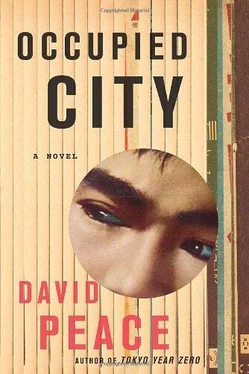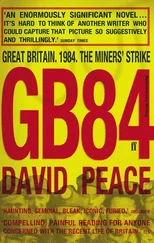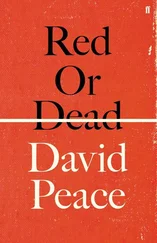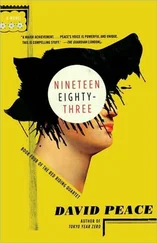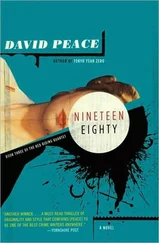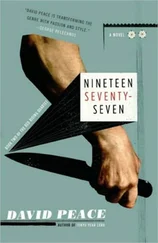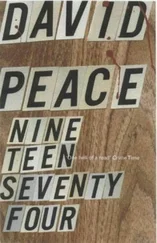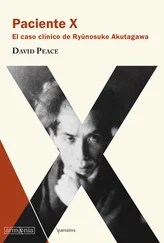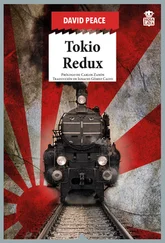However, I now know that on the afternoon of that day — Monday 26 January 1948 — I went to Mr Yamaguchi’s office in Marunouchi. Then, at around 3:30 p.m. — the time of the actual crime — I called at Mr Yamaguchi’s house and I returned home at about 5:00 p.m. with the fifty or sixty pieces of charcoal I had bought. I remember that my wife and my daughter were at home when I arrived back with this heavy bag. Also, an American soldier who was friendly with my daughter was also there and we played cards and spoke English well into the evening. That is what I did that day.
The next day, which was 27 January, I do remember reading about the Teikoku case in the newspaper, or maybe hearing about it on the radio, and I also remember discussing it with my wife and my daughters. I distinctly recall asking them, ‘What kind of man could do such a cruel and inhuman thing?’
That day, the day after the Teikoku murders, was also my younger sister’s birthday and so I remember travelling out to Ichikawa to visit her. And I think it was then that I decided, on the urging of my sister, to go to Hokkaido to see my younger brother. He had been seriously ill for some time with pulmonary tuberculosis and I had been meaning to visit him. And thanks to the money I had recently received from two of my patrons, I now had the cash to visit Hokkaido. So upon leaving my sister’s home in Ichikawa, I think I went to a travel agent in Marunouchi to arrange passage from Yokohama to Hokkaido on the Hikawa Maru . Or perhaps that was the day after. Anyway, it all occurred around this time.
I am most aware, though, that the initial confused, even contradictory nature of my original statements to the police led them to be suspicious of me and to further investigate me.
However, the original reason that they spoke with me in regard to the Teikoku Bank murders was because of the name-card that I had been given by Dr Matsui.
Of course, when I was questioned, I immediately admitted to meeting Dr Matsui on the ferry from Hokkaido and exchanging name-cards with him the summer before. However, when asked by the police, I was unable to produce his name-card and so they believed that the card Dr Matsui had given me on the ferry was the one which must have been used at the Ebara branch of the Yasuda Bank by the criminal. This might be so, but it would not be because I was the criminal. It would be because Dr Matsui’s name-card was in my wallet when it was stolen from me at Mikawashima Station in September 1947.
I had kept the card Dr Matsui had given me, along with a dozen or so other business cards, in my wallet, which, incidentally, was a leather one and of the type that fold in half. And I kept this wallet in the inside pocket of my jacket. That day there was also ¥11,000 in cash inside my wallet. It is embarrassing to say, but I was on my way to visit the parents of a woman I knew in order to repay them ¥10,000 which she had lent me. The train, however, was very crowded and I remember that my bag got caught and that I could not easily get off the train at Mikawashima Station because of all the people and I had to pull the bag hard in order to get off.
It was only when I arrived at the house of the young lady’s parents and I reached for my wallet in order to repay them the money that I then realized I had been pickpocketed. And curiously, in the place where my wallet had been, there was now a lady’s fan. Of course, I immediately rushed back to the station and reported the crime to the local kōban . I also gave the police as evidence the lady’s fan which had been placed in my pocket. I believe this was a unique trait of that particular pickpocket, his trademark. The officers at the Mikawashima kōban kept the lady’s fan. Unfortunately, at that time, I said nothing of this incident to my wife because it would have meant admitting that I had been forced to borrow money from a female acquaintance, which would not only have been embarrassing for me but hurtful for my wife. And so I thought it best to say nothing.
Of course, I now realize that my various deceptions and my many lies to my wife and to my children, not to mention the complicated nature of my finances and many of my relationships, both business and personal, only served to further arouse the suspicions of the police as they continued to investigate and later interrogate me. Now it is a source of intense regret and deep shame to me that I told so many lies, that I created so many deceptions.
In particular, I realize that my financial dealings seemed somewhat irregular and suspicious. In fact, I freely admit now that my financial arrangements were often of a dubious and illegal nature. And I realize now that I should have confessed my financial wrongdoings to the police at the outset.
But as I have already said, this was partly because I had embezzled a sum of money from the Society of Tempera Painters. It was also partly because it involved money I had either borrowed or loaned to my mistress. Finally, there was also cash from some famous and important people who would not want their names mentioning to the police, least of all in connection to such a high-profile case as the Teikoku Bank murders.
To this end, I have kept money in various places. For example, in the sack along with my painting tools. Or in cloth bundles. Even in banks under assumed names such as Hayashi and so on. As a result, I often misplace money or entirely forget that I have even received it in the first place, hard as that may sound to believe. And as I say, most of this money, the money that was in my possession after the Teikoku Bank murders and which the police therefore suspected I had stolen from the bank, this money came from either my embezzlement of the Society for Tempera Painters, to which I did not wish to confess, or from my various patrons, whom I did not wish to involve with the police. Some of these men are of exceedingly high standing.
Anyway, because of the name-card I had exchanged with Dr Matsui, and because of my confused and contradictory alibis, and because of the large amounts of cash in my possession, and because of my sudden trip to Hokkaido that February, and even because of my appearance, I was arrested in August 1948 in Otaru, Hokkaido, and charged with the murders, attempted murders and robbery of the Teikoku Bank in Toshima Ward in Tokyo on 26 January 1948.
At first, the police had come to Otaru ‘just in passing’ and as a ‘matter of routine’; then the police started to come once a month, and again ‘just in passing’, as a ‘matter of routine’; then the police came once a week, not ‘just in passing’, not as a ‘matter of routine’; and then, finally, they came once a day until they never went away, until that August day when they took me away with them.
Now I can recall very little about that journey back to Tokyo, little except for the crowds and the heat, the blanket over my head and the darkness around me and within me. I do remember I was frightened, particularly by the crowds that met our train at Ueno Station. I remember worrying about my wife and my children, about what they must be going through, about what they must be thinking.
Similarly, those first days in police custody in Tokyo are now forgotten and lost to me, forgotten and lost in an accelerating whirlwind of entering rooms and leaving rooms, of sitting down and standing up, a nauseous blur of different voices from different mouths, an ever-more deafening crescendo of questions and accusations–
‘You are a bad man, you are a wicked man,’ said the voices. ‘Is it not possible you are also a murderous man, a killer?’
Some of the voices were aggressive, some of the voices were consoling but, whatever their motivation, whatever their tone, soon I began to feel as though I was being hypnotized.
Читать дальше
